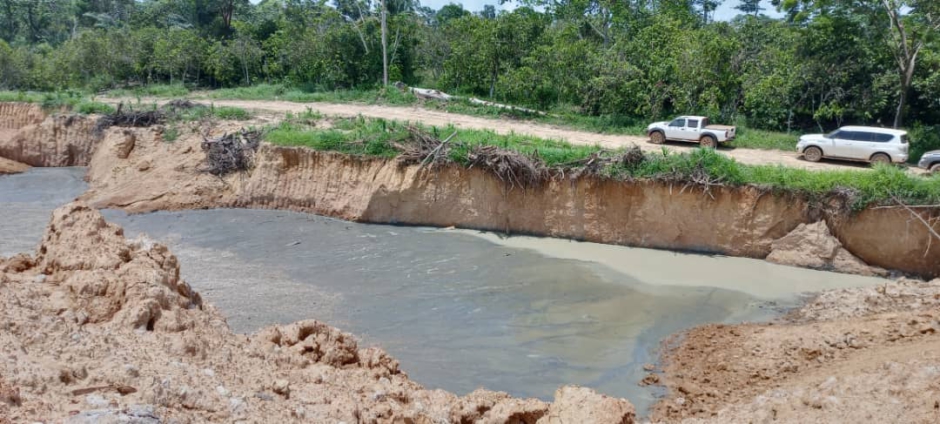Activities of illegal small-scale miners have made the Aboabo stream found in the Asutifi district of the Bono Ahafo region dangerous to the health of residents.
That is one of the findings from a study by the materials engineering department of the Kwame Nkrumah University of Science and Technology.
The study which assessed the impacts of illegal small-scale mining activities on the water quality was published in the journal of Earth Sciences Malaysia.
Samples of the stream water, sediments and plants around the stream were collected from three points which were the upstream, mid-stream and downstream for analyses.
Apart from the high cloudiness of the river, the scientists found contaminations with harmful bacteria like E-coli and heavy metals like Mercury.
“Faecal coliforms and E-coli readings exceed the permissible limit of 5 NTU and 0 MPN/100ml respectively as required by Ghana’s Environmental Protection Agency and World Health Organisation (WHO).
“Total suspended solids readings at the midstream were higher than the permissible limit. However, levels of total dissolved solutes and dissolved oxygen recorded, were below the limit.
“The sediments were also heavily polluted with Mercury, Arsenic and Cadmium,” lead scientist, Ebenezer Asante Boafo Brobbey, said.
There was, however, a ray of hope as the scientist found plants like the Christmas bush scientifically known as Alchornea cordifolia could salvage mercury from the river.
“Alchornea cordifolia, Chromolaena odorata and Spigella anthelmia growing within the stream were taken to assess their efficiency in removing the heavy metals from the stream. It was observed that the plants species had bioaccumulation factor (BF) greater than 1 for cadmium.
“Alchornea cordifolia was the only plant with BF greater than 1 for mercury. The plants species are potential hyper accumulators for mercury and cadmium hence are suitable for phytoremediation,” he said.
The scientists are advising the residents to desist from using these untreated streams as a source of drinking water to prevent any future bacterial epidemics.
They again advice that effluents from the illegal mining activities be diverted from entering the stream.
Waste rock dumps should be sited far away from the stream to avoid contamination by run-off water from the waste rocks.
Latest Stories
-
President Mahama hints at completion of National Cathedral, says location may change
13 minutes -
Kamaldeen Sulemana stars with goal and assist as Southampton beat Swansea in FA Cup
19 minutes -
Zirkzee scores winning penalty as 10-man Manchester United knock out Arsenal from FA Cup
58 minutes -
George Quaye tips Dzifa Gomashie for Tourism Minister position
1 hour -
MTN FA Cup: Kotoko beat Accerler8z to book last 16 spot
1 hour -
Free SHS and the NDC’s dilemma: A look into the future
2 hours -
NIB D-G bought state lands at Cantoments for ¢160k – Documents reveal
2 hours -
Dr Arthur Kennedy: A reset for Ghana
3 hours -
Teacher trainees call for resolution of strikes before colleges reopen
3 hours -
National Prayer and Thanksgiving Service to be held today at UPSA
3 hours -
‘Take the naughty, stealing taxes away’ – E.P Church Moderator to President Mahama
3 hours -
Employee Assistance Programmes: The heartbeat of a 24-Hour economy
4 hours -
Atebubu drivers attack Police after suspected robbers killed 75-year-old driver
4 hours -
Ejura Death: Family rejects autopsy report, alleges police brutality
4 hours -
Paramount Chief of Wenchi instructs illegal miners to stop operating in the area
5 hours

